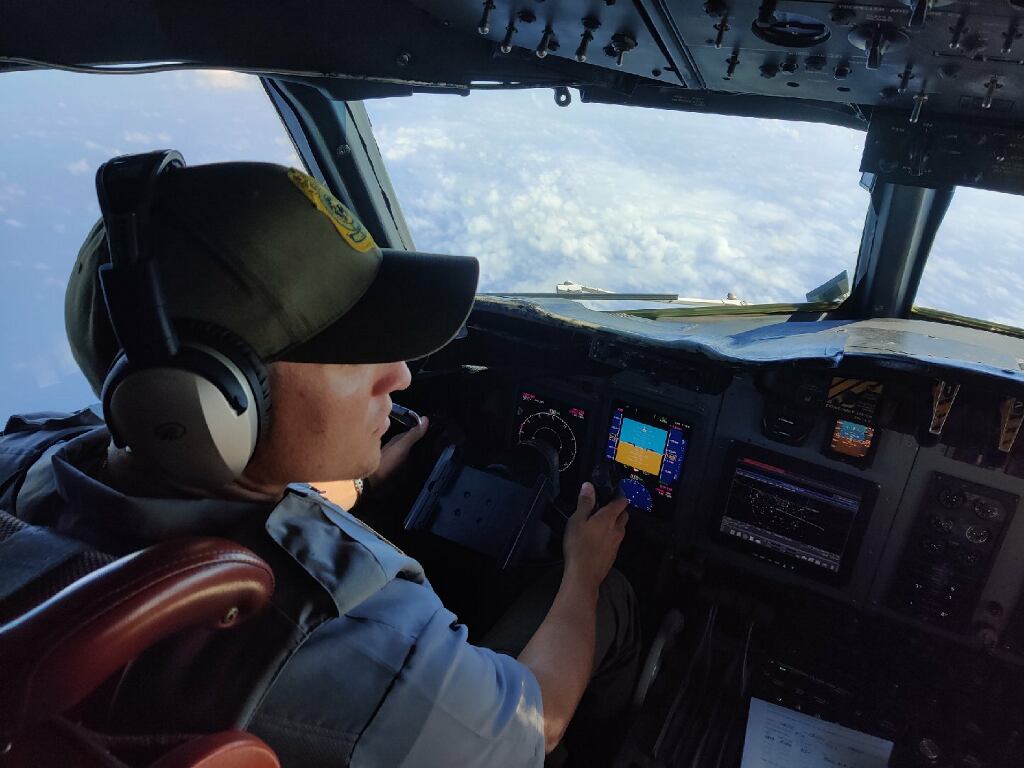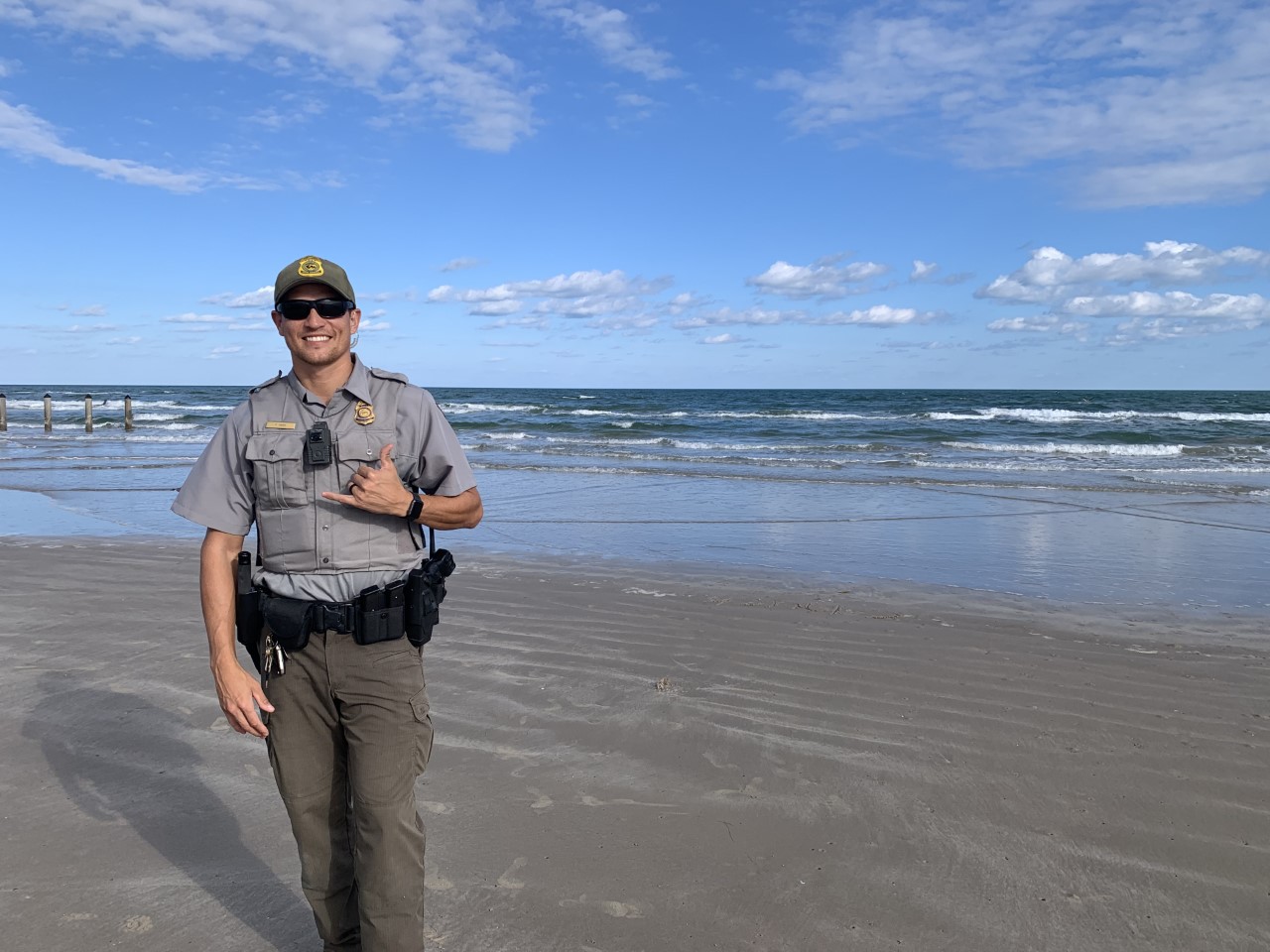Posted on November 9, 2021 by Amanda Cerreto
November 10, 2021 - Employment with the National Park Service (NPS) may bring to mind the hit show, Parks and Recreation, where a group of government bureaucrats provide services and programs to the fictional town of Pawnee, Indiana.
 In reality, the National Park Service is multilayered and requires its employees to wear many hats.
Trent Haire
'12, a graduate of the
Department of Criminology and Criminal Justice
at UTSA, can attest to that.
In reality, the National Park Service is multilayered and requires its employees to wear many hats.
Trent Haire
'12, a graduate of the
Department of Criminology and Criminal Justice
at UTSA, can attest to that.
Haire is employed on the Padre Island National Seashore in Corpus Christi - and he is certainly not a paper pusher.
"As a kid, I always enjoyed being outdoors and camping," Haire recalled. "I never thought I could apply law enforcement to that scenery; you automatically think of a city beat cop."
After taking an introduction course to criminal justice at UTSA, Haire was hooked. But it wasn't until he applied for an internship with the Pro Ranger Program, a San Antonio program that at the time was aimed at diversifying the workforce in NPS, that he realized he could marry his two passions.
The internship program enabled Haire to work at Yellowstone and the Gulf Islands National Seashore. There, he learned everything from working in the back-country office to working with law enforcement on the hiking trails to taking EMS calls and learning how to handle structural firefighting.
For Haire, the best part of his job is that the work calls for a criminology and criminal justice background, but it involves more than strict law enforcement. Park rangers wear many hats, from checking fisherman licenses to working hand in hand with Border Patrol to tackle the issue of human smuggling.
 “A lot of stuff occurs in the parks that the general public doesn’t always realize,” Haire said. “We handle law enforcement here, we do some EMS, some boating, and I’m also a wildland firefighter.”
“A lot of stuff occurs in the parks that the general public doesn’t always realize,” Haire said. “We handle law enforcement here, we do some EMS, some boating, and I’m also a wildland firefighter.”
While the job certainly has its stress points and difficult moments, Haire realizes how unique and special his career is.
“It's a lot of law enforcement and can get heavy, but on the other hand I get to drive down a beautiful beach,” he said. “I saw the sunrise this morning. It's the best of both worlds.”
Haire credits his education at UTSA for providing him with the background he needed to succeed in his career. He advises anyone thinking of entering the program to keep an open mind, because the subject can be applied to so many more areas than typical police work.
“Figure out what aspect of criminal justice you’re passionate about,” Haire said, “and be open minded. There’s so much stuff out there to explore.”

